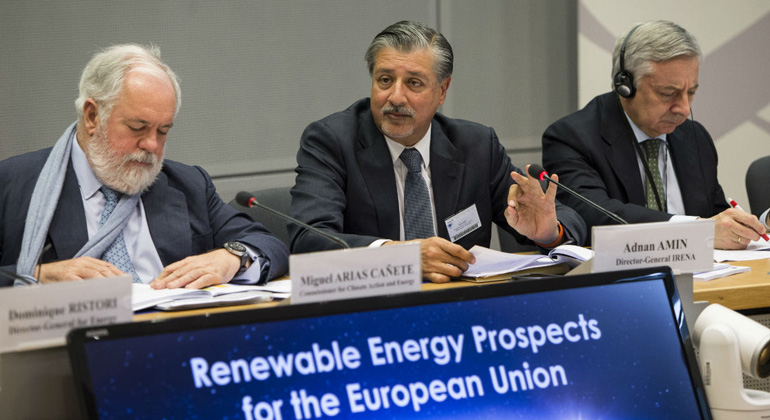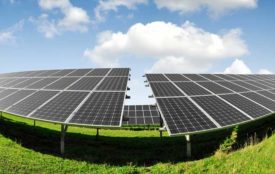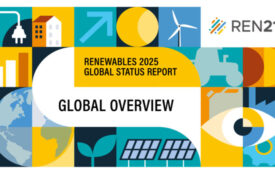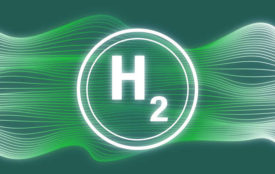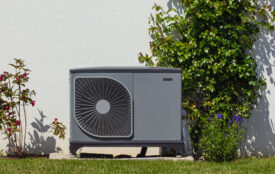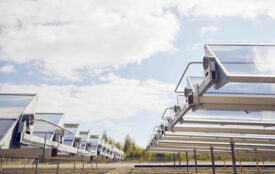EU Doubling Renewables by 2030 Positive for Economy, Key to Emission Reductions
New IRENA report outlines how increasing share of renewables to 34% can boost economy, and help meet emission reductions goals.
The European Union (EU) can increase the share of renewable energy in its energy mix to 34 per cent by 2030 – double the share in 2016 – with a net positive economic impact, finds a report by the International Renewable Energy Agency (IRENA), launched in Brussels.
Presenting the findings during a launch event, ‘Renewable Energy Prospects for the European Union’ – developed at the request of the European Commission – IRENA’s Director-General Mr. Adnan Z. Amin highlighted that achieving higher shares of renewable energy is possible with today’s technology, and would trigger additional investments of around EUR 368 billion until 2030 – equal to an average annual contribution of 0.3 per cent of the GDP of the EU. The number of people employed in the sector across the EU – currently 1.2 million – would grow significantly under a revised strategy.
Raising the share of renewable energy would help reduce emissions by a further 15 per cent by 2030 – an amount equivalent to Italy’s total emissions. These reductions would bring the EU in line with its goal to reduce emissions by 40 per cent compared to 1990 levels, and set it on a positive pathway towards longer-term decarbonisation. The increase would result in savings of between EUR 44 billion and EUR 113 billion per year by 2030, when accounting for savings related to the cost of energy, and avoided environmental and health costs.
“For decades now, through ambitious long-term targets and strong policy measures, Europe has been at the forefront of global renewable energy deployment,” said IRENA Director-General Adnan Z. Amin. “With an ambitious and achievable new renewable energy strategy, the EU can deliver market certainty to investors and developers, strengthen economic activity, grow jobs, improve health and put the EU on a stronger decarbonisation pathway in line with its climate objectives.”
Welcoming the timeliness of the report, Mr. Miguel Arias Cañete, European Commissioner for Energy and Climate Action said: “The report confirms our own assessments that the costs of renewables have come down significantly in the last couple of years, and that we need to consider these new realities in our ambition levels for the upcoming negotiations to finalise Europe’s renewable energy policies.”
The report highlights that all EU Member States have additional cost-effective renewable energy potential, noting that renewable heating and cooling options account for more than one-third of the EU’s additional renewables potential. Furthermore, all renewable transport options will be needed to realise EU’s long-term decarbonisation objectives.
Additional key findings from the report, include:
- Reaching a 34% renewable share by 2030 would require an estimated average investment in renewable energy of around EUR 62 billion per year.
- The renewable energy potential identified would result in 327 GW of installed wind capacity an additional 97 GW compared to business as usual, and 270 GW of solar, an 86 GW increase on business as usual.
- Accelerated adoption of heat pumps and electric vehicles would increase electricity to 27 per cent of total final energy consumption, up from 24 per cent in a business as usual scenario.
- The share of renewable energy in the power sector would rise to 50 per cent by 2030, compared to 29 per cent in 2015.
- In end-use sectors, renewable energy would account for 42 per cent of energy in buildings, 36 per cent in industry and 17 per cent in transport.
- All renewable transport options are needed, including electric vehicles and – both advanced and conventional – biofuels to realise long-term EU decarbonisation objectives.
The report is a contribution to the ongoing discussions on the European Commission’s ‘Clean Energy for All Europeans’ package, tabled in November 2016, which proposed a framework to support renewable energy deployment.
